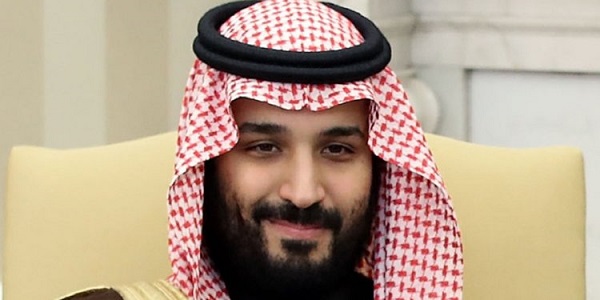Alwaght- Since October 2, when the prominent Saudi journalist Jamal Khashoggi killing’s case became a hit in the global media and political circles, the Saudi rulers have been grappling with a big crisis which has shaken their power pillars and legitimacy.
The killing has stirred a worldwide outcry and condemnation of Saudi rulers, to the frustration of those behind the crime who appear to have thought that the murder will be addressed like an ordinary case and be forgotten soon. The situation went more compounded for the Crown Prince Mohammed bin Salman especially after the kingdom’s admission that the critic of bin Salman was killed at the Saudi consulate. The attorney general issued a statement on October 20, after nearly three weeks of silence and denial, saying that Khashoggi was killed accidentally after a brawl broke out at the diplomatic building, a story the world never believed.
During his speech at the parliament on Tuesday, the Turkish President Recep Tayyip Erdogan dismissed the Saudi explanation about the journalist’s death. He made some revelations apparently aimed to prove that the crown prince was directly involved.
As a result of the heavy wave of charges, the inexperienced young prince has now embarked on a set of tricks to distract the public opinion and clear himself from the case. Three major moves he is taking to get himself out of Khashoggi assassination quagmire.
Offering condolences to Khashoggi’s family, vowing to punish culprits
A top tactic the de facto ruler of Saudi Arabia is resorting to is providing an atmosphere of passion and protection to the family of the assassinated journalist, as well as promising to bring to justice those responsible. On October 23, Prince Mohammed and his father King Salman bin Abdulaziz met the sons of Khashoggi in an apparently staged meeting. Seeking shield to his son, the king said that all of the killers will be brought to justice. The cabinet, presided by King Salman, noted that the measures of the government will not stop at punishing the “culprits” but will include some work to prevent the repetition of such crimes.
Dismissing senior officials
Following his installation to the crown prince post on June 21, 2017, bin Salman unveiled ambitious political, economic, and foreign policy programs. But since the beginning, he faced opposition from a wide range of royals. He decided that he should quell his rivals and intensify the political crackdown on the opposition voices. He jailed and killed part of critics and political opponents. But, to his frustration, Khashoggi’s case, proved crisis-making, even shaking his rule ground.
The crown prince seeks to remove the international pressures which find him the main factor behind the killing. To this end, he dismisses senior government officials. Removal of the Foreign Minister Adel al-Jubair, who has no royal roots appears to be the shortcut to the plan implementation. Sacking al-Jubair and a number of the prince’s advisors can help bin Salman cover up his role in the killing. After admission of the killing, he removed the intelligence chief Ahmed al-Asiri.
Diplomatic lobbying, persuading the influencers by sweeteners
Since the Turkish president’s speech to the national parliament, Saudi Arabia stepped up is diplomatic moves at a serious level. The Saudi rulers pose as supporters of the Turkish-led investigation in a bid to paint themselves as blamers of the crime. This, they think, will help them mend their international image. Al-Jubair, for instance, on October 23 in a press conference with this his Indonesian counterpart said that Saudi Arabia has sent a team of investigators to Turkey and all of the killers will be arrested and brought to justice. He added that Riyadh will do all needed to make sure that incident like this will have no sequel. He called the journalist’s killing a “grave mistake. He continued that Saudi Arabia is committed to a comprehensive investigation and that the crown prince was not aware of the murder.
Saudi oil minister, talking in the Future Investment Initiative conference in Saudi Arabia, dubbed “Davos in desert”, found the killing a blow to Saudi Arabia’s name.
"It's not a death, it's a murder. We admit it, we're dealing with it. As such, we will be transparent and show our allies and friends in the United States ... that the kingdom is as unhappy about what has happened as anybody else. In fact, we are more unhappy because it has tarnished the name of the kingdom," he said on the sidelines of the conference, adding, however, Saudi Arabia would emerge from the crisis stronger. He also said that the killing is unacceptable and nobody in the country can justify it.
Despite all of his arrangements, the crown prince does not seem to be able to survive the crisis easily and without costs for two reasons. First, there is a lot of evidence, beside the track record of the authoritarian prince’s measures in crackdowns on the opponents, which make the claims about his unawareness of the assassination implausible. Second, the Western and world media are particularly bringing the incident in the spotlight and so the Western governments, which are allies of the oil-rich monarchy, cannot simply close eyes to the crime. Despite defending him in the case, for example, the US president does not appear to be able to reject that the prince had a hand in the crime against the outspoken journalist.
Still, some experts do not rule out that sweeteners will be paid by the Saudis to help smoothen the American senators' tone, some of whom openly called for the administration to sanction the kingdom and impose a ban on arms sales to it. Another party that may get privileges in return for silence is Turkey. Ankara says it has audio and video recordings of the killing but has not yet revealed them, may be waiting to see how much Prince Mohammed is ready to pay as hush money.



























